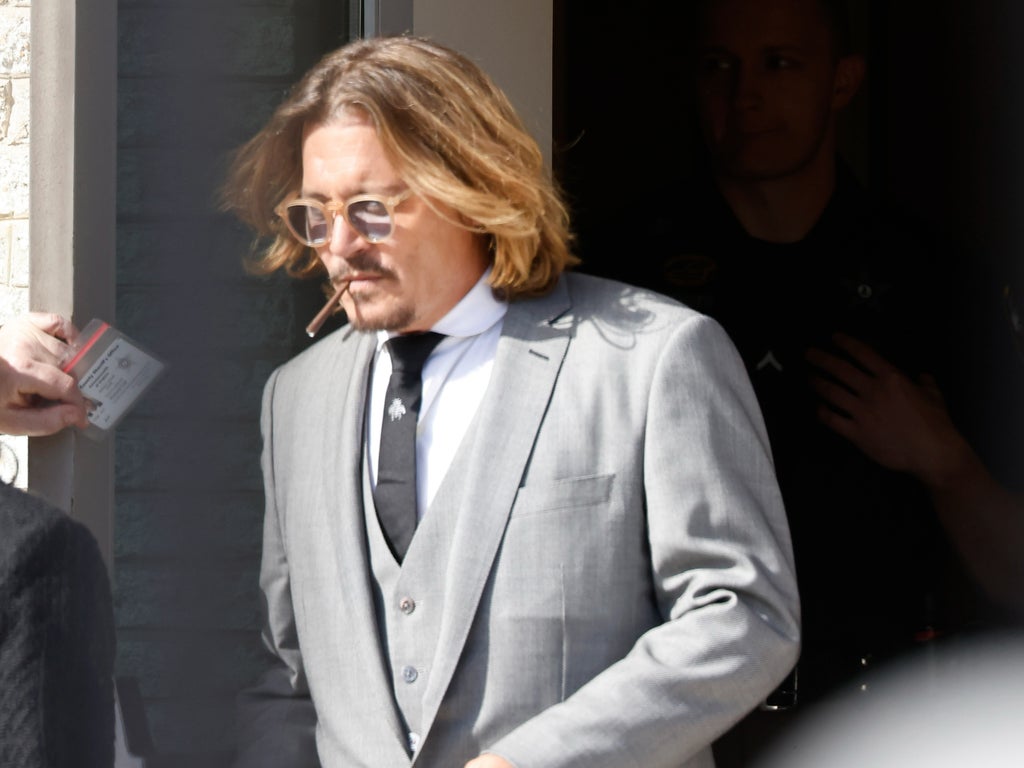
The latest chapter in the long-running series of legal battles between divorced Hollywood actors Johnny Depp and Amber Heard began on Monday, with the former suing the latter for defamation over an opinion piece she wrote for The Washington Post in which she discussed her experiences of domestic violence.
Although Ms Heard, 35, did not name her ex-husband in the December 2018 article, Mr Depp’s lawyers argue that readers were likely to assume he was the person responsible for the ordeal she alluded to and are suing for $50m, claiming that the piece caused their client to lose work.
Mr Depp, 58, is a prolific blockbuster star best known for his run of dark fantasy films with director Tim Burton and for the lucrative Pirates of the Caribbean franchise but was recently replaced in the role of Gellert Grindelwald in the Fantastic Beasts movies by Mads Mikkelsen after he was asked to step down by Warner Brothers.
The new case is being heard in Fairfax County, Virginia, due to the court’s close proximity to The Post’s offices and follows Mr Depp’s defeat in a 2020 defamation suit against The Sun newspaper in London after it branded him “a wife beater” in a story about the acrimonious divorce.
Judge Penney Azcarate, presiding, ruled in a preliminary hearing in Virginia in March that Ms Heard’s legal team was entitled to use a defence known as an anti-SLAPP Provision, which stands for a Strategic Lawsuit Against Public Participation and means the actress is free to argue before a jury that she should be protected from a libel lawsuit given that the article in question addressed a matter of public interest.
Elaine Bredehoft, Ms Heard’s attorney, argued that her subject, the prevention of spousal abuse, was of importance to the public and her client should therefore be shielded from prosecution.
Benjamin Chew, representing Mr Depp, argued, ultimately unsuccessfully, that such a provision was not intended for use in private disputes.
“Anti-SLAPP laws are intended to prevent people from using courts, and potential threats of a lawsuit, to intimidate people who are exercising their First Amendment rights,” the Reporters Committee for Freedom of the Press states.
“In terms of reporting, news organisations and individual journalists can use anti-SLAPP statutes to protect themselves from the financial threat of a groundless defamation case brought by a subject of an enterprise or investigative story.”
The trial is expected to generate huge interest and bring a number of high-profile figures to the witness stand including, reportedly, tech impresario Elon Musk and actor James Franco.

Writing on Instagram on Monday, Ms Heard said: “Johnny is suing me for an op-ed I wrote in The Washington Post, in which I recounted my experience of violence and domestic abuse.
“I never named him, rather I wrote about the price women pay for speaking against men in power. I continue to pay that price, but hopefully, when this case concludes, I can move on and so can Johnny.”
She continued: “I have always maintained a love for Johnny and it brings me great pain to have to live out the details of our past life together in front of the world. At this time, I recognise the ongoing support I’ve been fortunate to receive throughout these years, and in these coming weeks I will be leaning on it more than ever.”
The trial continues.







